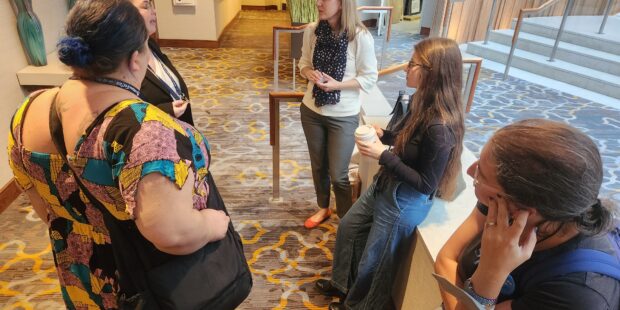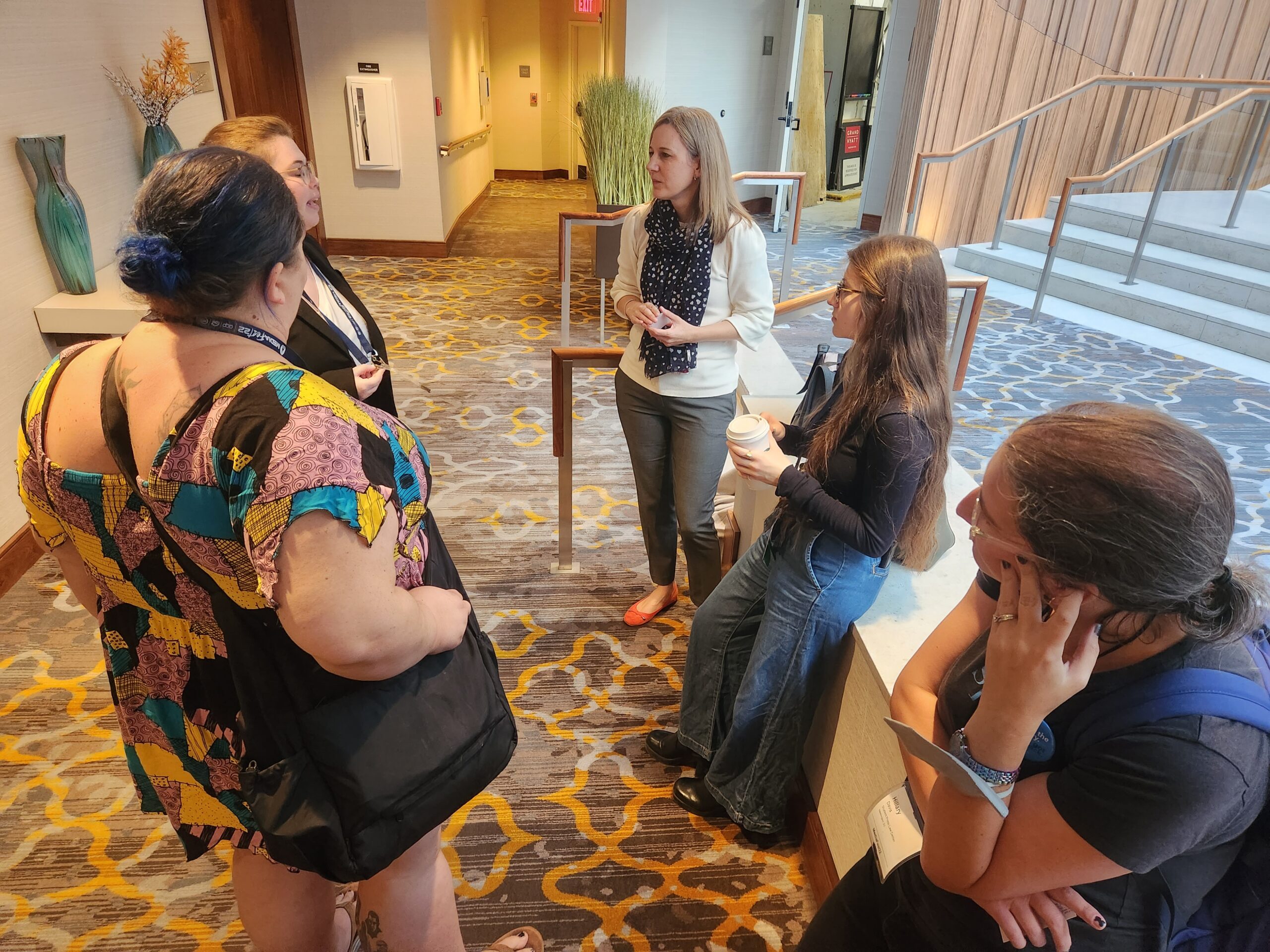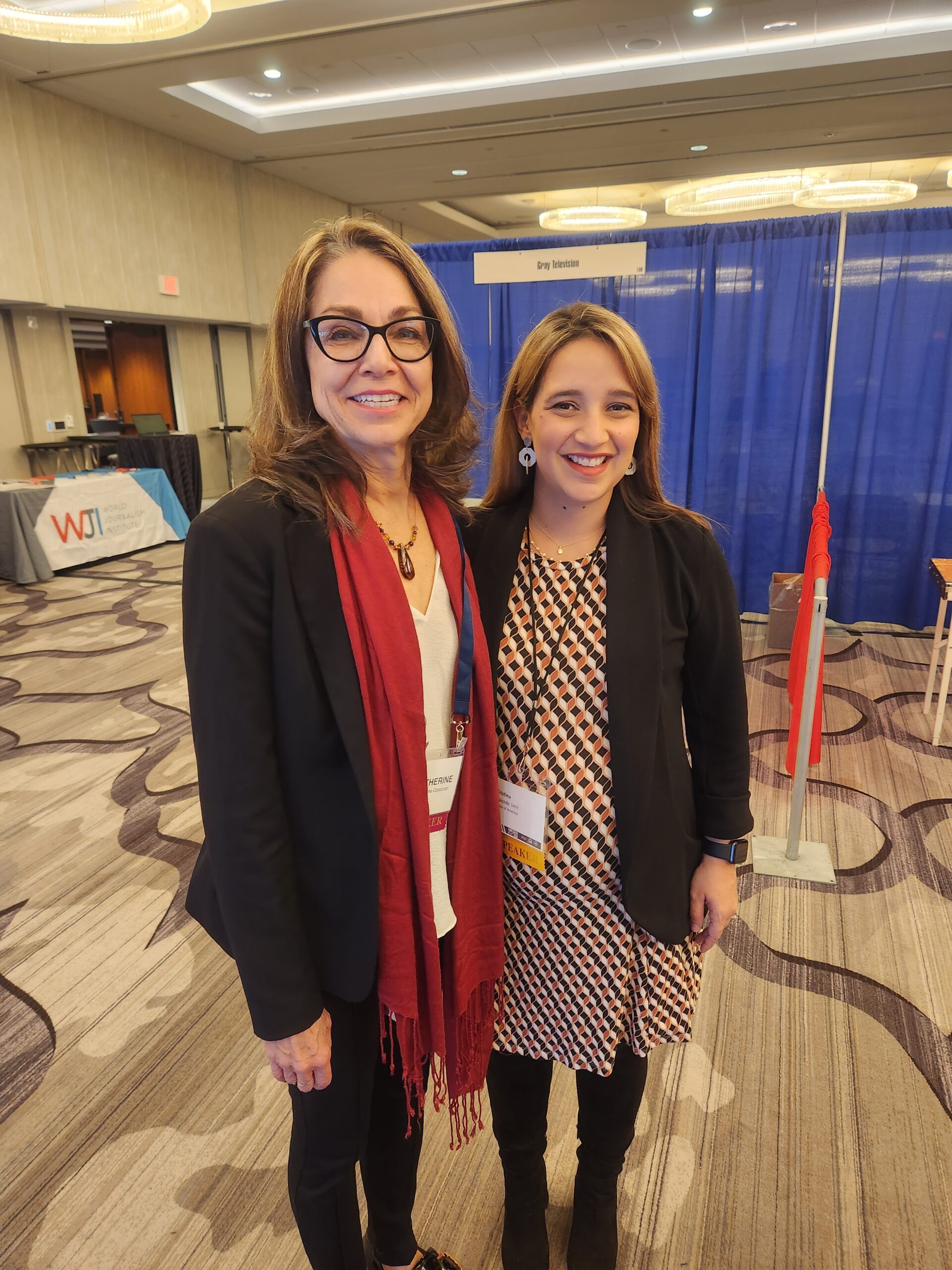
Three panels at the recently ended MediaFest22 journalism conference in Washington, D.C., demonstrated that just because something is labeled “international” it doesn’t mean there cannot be a local angle. Dan Kubiske, treasurer of the SPJ DC Pro Chapter and co-chair of the SPJ International Community, hosted panels on digital safety for journalists, covering press freedom as a news beat and why the threats to journalists in Mexico affect American journalists and society.
The panel on digital security featured a hands-on demonstration of Tor, an online service that protects journalists – and their sources – from government tracking. Allison Macrina, director of the Library Freedom Project, showed the attending students and professional journalists how Tor works to protect their location and information.
Macrina also introduced SecureDrop, a means for sources to share information with journalists in a secure manner. Major news organizations such as The Washington Post, The Guardian and Al Jazeera use this online service.
Macrina noted that democracy activists in dictatorships use Tor to communicate with each other and with media outlets around the world. The security it and SecureDrop are also beneficial to journalists working with whistleblowers in the United States.
The session was recorded and is available at the SPJ International Community YouTube Channel.
Press freedom is an ongoing concern of all journalists, but too often it only gets covered as a sidebar to other stories. So far, the SPJ International Community has identified only two news organizations that have dedicated sites for press freedom – Voice of America and Al Jazeera.
Jessica Jerreat, editor of the VOA Press Freedom Page, spoke about how and why journalists should produce stories about press freedom. She pointed to reports from Mexico, the deadliest place for journalists in the world, that showed Mexican citizens were grateful for the coverage local journalists provided on missing and murdered people in their communities. One group, Jerreat said, noted that until the local press began pushing for more information about missing people, the local and regional governments did little to help.
Jerreat said even as the journalists were pushing the stories about the missing and dead, they were also explaining – often in separate stories – how they went about their investigations. The local media, said Jerreat, was explaining to their readers how they did their work. In turn, this built more trust in the local press and in the local reporting.
 When students from Alabama and California commented on how they were being stonewalled by their campus administrations, rather than let stories be delayed because officials were not released information under FOI requests, Jerreat suggested the campus papers begin reporting on the steps they have taken to get information about the issues under discussion. She said this would show the readers the numerous steps being taken to get information vital to the public and who was holding back that information.
When students from Alabama and California commented on how they were being stonewalled by their campus administrations, rather than let stories be delayed because officials were not released information under FOI requests, Jerreat suggested the campus papers begin reporting on the steps they have taken to get information about the issues under discussion. She said this would show the readers the numerous steps being taken to get information vital to the public and who was holding back that information.
Stories about FOI compliance delays or recalcitrant public information officers are stories about press freedom being denied, Jerreat said. They are also stories that build trust with the public because they show what steps are being taken to make sure the story is accurate.
After this session, Jerreat met with these students to discuss their situation in more depth. One observer said they would not be surprised to see a story about obstruction of information in American universities appear on the VOA Press Freedom page soon.
The International Community ends each of its online sessions with the same question: What does press freedom mean to you? Jerreat responded, “It is to support and celebrate the good journalism can do. But it is more, it is a right to be recognized and protected.”
The session was recorded and is available at the SPJ International Community YouTube Channel.
Reports on the murders of Mexican journalists are a too often reported event. At least 15 journalists have been killed in Mexico so far in 2022. According to the panelists in the Threats to Mexican Journalists and Why It Matters session, these murders along with numerous more threats, challenge the stability of society.
 Once viewed as a danger to society the threats to journalists take on a much larger importance, said panelists Katherine Corcoran, former AP Bureau Chief in Mexico and author of “In the Mouth of the Wolf” and Cristina Caicedo Smit, reporter and producer at Voice of America.
Once viewed as a danger to society the threats to journalists take on a much larger importance, said panelists Katherine Corcoran, former AP Bureau Chief in Mexico and author of “In the Mouth of the Wolf” and Cristina Caicedo Smit, reporter and producer at Voice of America.
The panelists were asked to comment on a statement by Vicente Calderon, founder and editor of TijuanaPress.com in Tijuana, Mexico. Calderone said the threats and murders of Mexican destabilizes Mexican society because the people are denied the information they need to make rational decisions about government policy. He said he sees the same situation forming in the United States with attacks on media outlets as “enemies of the state” or “purveyors of fake news.” He pointed to the stabbing of investigative journalist Jeff German in Las Vegas by a government official who was the target of German’s investigations.
Corcoran and Smit said they agreed with Calderon’s comments and concerns. Without journalists willing to brave the threats against them, they said, democratic societies would break down.
Corcoran said according to Press Freedom Tracker, there have been almost 950 attacks on journalists in the United States in the past five year. She added that number does not include legal action taken against journalist, equipment damage or denial of access.
Smit said her reporting on why Mexican journalists keep going showed that their motivation is the same as that of their American colleagues. She said the reporters want to inform people about what is going on and why. Even when the reporters face death threats and kidnappings, she said, they keep going.
In response to the customary International Community question of what press freedom means to them, the panelists referred back to the need for press freedom to ensure a stable society. Smit said press freedom means the ability to tell the story and be able to make it personal. To tell the individual stories of the people around you. Corcoran said, to her press freedom means a free society. To have a free society you need to have free thought.
The session was recorded and is available at the SPJ International Community YouTube Channel.
